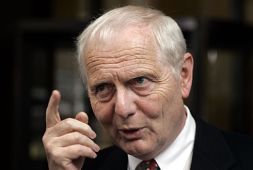UN Security Council inches closer towards authorizing Darfur force
July 27, 2007 (KHARTOUM) —With Western nations dropping earlier threats of sanctions against Khartoum, the UN Security Council is edging closer to consensus on a draft text authorizing joint UN-African Union peacekeeping in Darfur.

A diplomat speaking on condition of anonymity said a vote on the toned-down text could come as early as Tuesday, the day when Britain’s new prime minister, Gordon Brown, is due to visit UN headquarters to deliver a major foreign policy speech.
Facing strong domestic pressure from the Save Darfur coalition and members of Congress, Washington, joined by Britain, initially pushed for a tough line to ensure Khartoum stick to its June agreement to allow a joint 26,000-strong UN-AU force known as UNAMID in the strife-torn Sudanese western region.
But tough stances taken by governments in capitals are often deflated by the requirements of UN multilateralism, which lead to inevitable compromise, diplomats noted.
A Darfur text drafted by Britain last month called for unspecified “further measures” against Sudanese parties that would fail to fulfill their commitments or cooperate fully with the resolution.
But it became clear that the draft would have to substantially softened to attract broad support, particularly from African council members and from veto-wielding China, a close ally and energy partner of Khartoum.
Tuesday, the sponsors, Britain and France, backed by the United States, withdrew the sanctions threat after a long bargaining session with South Africa, Ghana and Congo.
“We changed the text quite considerably. The tonality has changed … I think there is less threatening language in there. It’s more of a conciliatory text,” Jones Parry said at the time.
“What we are looking at is to have very large support and if possible consensus,” his French counterpart Jean-Marc de La Sabliere chimed in.
Throughout the week, council experts have been trying to iron out differences over remaining sticking points involving a reference in the text to the sensitive Chapter Seven of the UN Charter, invoked in cases of threats to international peace and security.
A paragraph in the draft said the council, acting Chapter Seven, authorizes UNAMID “to use all necessary means, in the areas of deployment of its forces” to prevent attacks and threats against civilians and to protect its personnel.
The force would also be empowered to use force to ensure security and freedom of movement for humanitarian workers and “monitor whether any arms or related material are present in Darfur” in violation of UN resolutions.
Sudan, backed by to varying degrees by China, Qatar and Indonesia, strongly objects to any use of force to monitor or deter arms enbargo violations in Darfur, diplomats said.
But US Ambassador to the UN Zalmay Khalilzad said he insisted on preserving three core elements in the text: that the force be operated under UN command and control procedures, that the current AU force in Darfur shift to a joint AU-UN force as soon as possible and that Chapter Seven remain.
UNAMID is to take over peacekeeping from 7,000 underfunded and ill-equipped to try to end four years of bloodshed during which an estimated 200,000 people have died in Darfur from the combined effect of war and famine.
Once the draft resolution is adopted, UN officials are to start working on a budget and finalizing preparations for the deployment, which is not expected to begin until early next year.
The Darfur conflict began in 2003 when an ethnic minority rose up against the Arab-dominated government in Khartoum, which then enlisted the Janjaweed militia group to help crush the rebellion.
(AFP)
